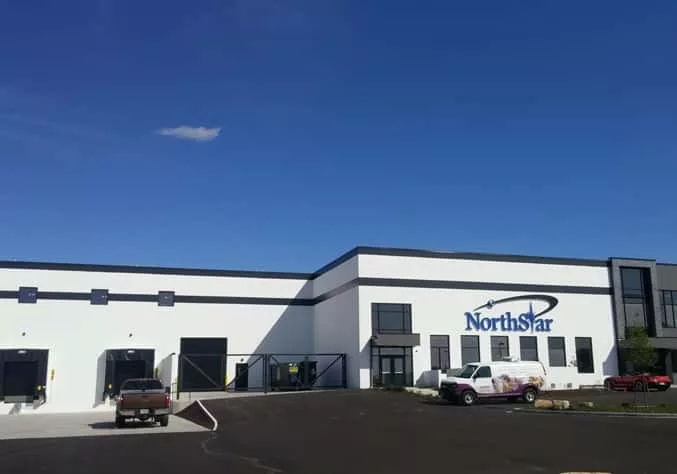
| By Neil Johnson, reporter/anchor, Big Radio |
Beloit’s NorthStar Medical Radioisotopes is pivoting away from producing molybdenum-99 in a move that means it could shave off up to a third of its workforce.
NorthStar executive vice president Paul Estrem says starting this week, NorthStar begins pivoting from moly-99 isotope prodcuction. Instead, he says the company will delve more deeply into cancer therapy isotopes–a market the company already has plans to move into as a contract nuclear medicine maker.
Mol-99 is made from irradiated uranium in nuclear accelerators and reactors. It’s used to light up bone and body tissue in medical imaging, but it’s not used in cancer treatments. NorthStar and another Rock County nuclear radioisotope producer, SHINE Technologies in Janesville had originally formed on business models that would have relied heavily on moly-99 production.
Estrem says even as NorthStar has made about 2.5 million doses of moly-99, a few moly-99 producers remain subsidized by the government at a time when NorthStar is not. It’s crimped company profits at a time of higher inflation in labor and scant availability of materials.
NorthStar’s shift affects 93 employees who work in the company’s moly-99 equipment and chemical production divisions–65 of whom work at the company’s flagship Beloit campus in the Gateway Business Park. NorthStar as of last week employed about 350 people, and the company has gone on a tear building out new facilities on its campus to try to capture market share of cancer drugs.
NorthStar’s moly-99 model relies on the production of moly and agreements by radiopharmacies to buy and use NorthStar’s propreitary Radiogenix units–equipment that’s used to mix and meter doses of moly-99. NorthStar’s pivot away from moly-99 requires the company to notify its moly-99 clients. It also effectively cuts off production of new Radiogenix units.
One of the future facilities now being built on NorthStar’s Beloit campus would allow the company to make radioactive drugs, including two cancer therapies, as a third-party contractor. Those cancer medicines made there do not require pharmacies to use NorthStar’s Radiogenix, Estrem said.
NorthStar’s shift away from moly-99 production comes following a similar move earlier this fall by SHINE. SHINE CEO Greg Piefer says the company is slowing on its plans to activate a 45,000-square-foot moly-99 production facility, instead opting to focus on its own line of cancer therapies. SHINE laid off about 55 people–many of whom were linked to the company’s moly-99 division.
Estrem says many US moly-99 makers are scuffling in a market that has a few makers still subsidized under government programs designed to spur private side production of moly-99. That model operated on the theory that almost all the moly being made now and in recent prior years is produced using aging foreign reactors. Private, U.S. domestic production of moly-99 was supposed to ease global bottlenecks for the drug that happen regularly because of frequent shutdowns to maintain and repair aging reactors used on the process.
Estrem says the model has been turned on its head in part because of the cost now to NorthStar and others to make moly. He said NorthStar normally sources raw materials from Russia. But the war between Russia and the Ukraine has forced the company to look elsewhere, and at an increased cost to the company.
The company says it’s offering severance to workers who NorthStar cannot offer a transfer within the company or help finding other, similar work locally.
